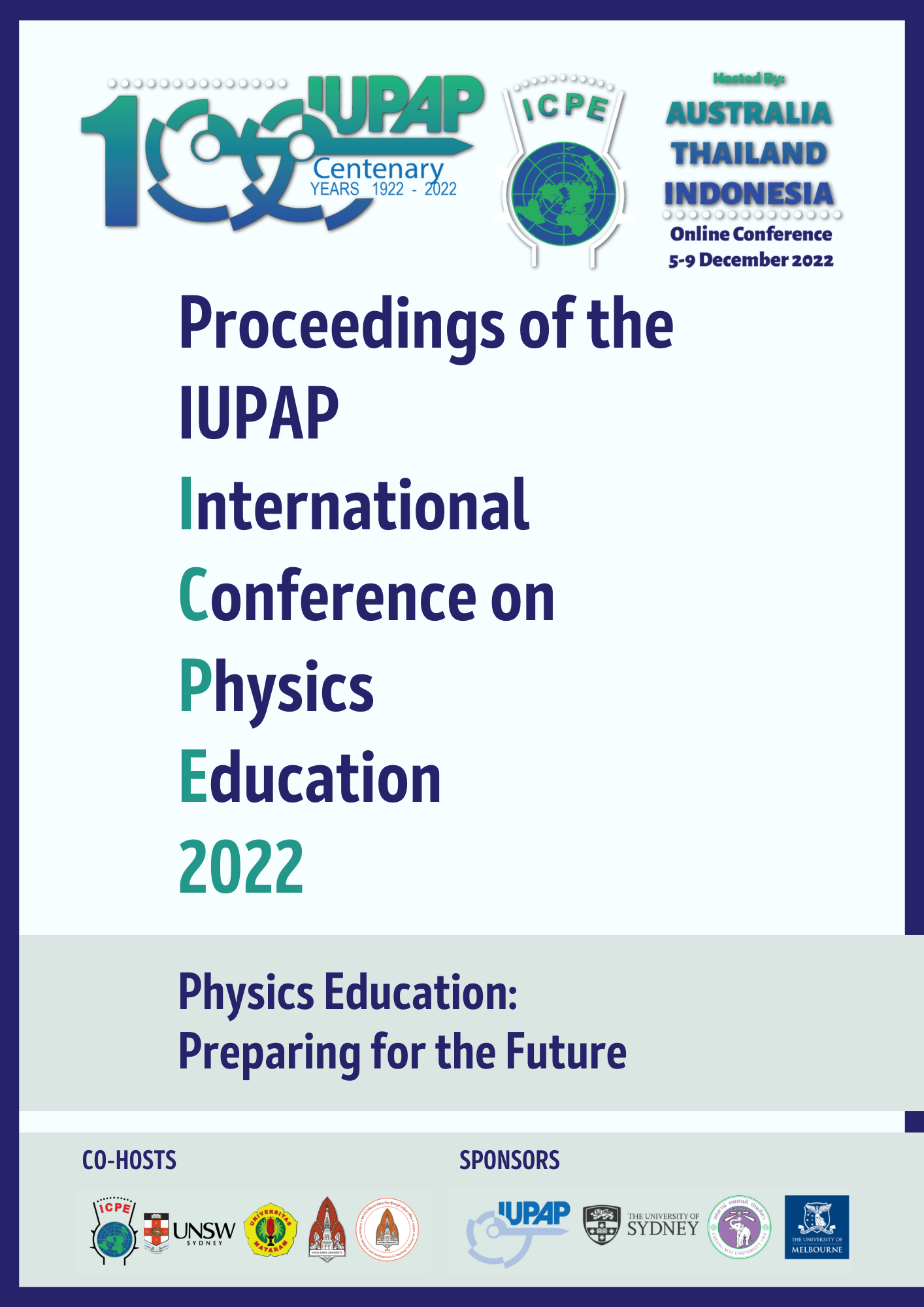Training teachers for new ways of understanding the teaching of physics from its mathematization
Keywords:
Classroom interaction, Didactic of physics, DiscourseAbstract
The use of mathematics in physics teaching often becomes an obstacle to learning. Within the framework of this problem, we set out to study the possibilities of training future teachers for new understandings of the relationship between physics and mathematics. Our main frame of reference is a research sequence developed in the Teaching and Learning of Physics research group in Castiblanco (2003), Vizcaíno (2013), Castiblanco and Nardi (2018), Vizcaíno and Terrazán (2020), Castiblanco and Vizcaíno (2022a, b). In this case, data arose from participant observation in a Physics Didactics course in an initial teacher training program at the District University Francisco José de Caldas, Bogotá. It was qualitative research of case study type, with 20 students finishing their training process. We focused on addressing the "mathematization of physics for teaching" in three phases by developing ways to enrich classroom interaction using experimental resources, technologies, and literature. The three phases were the criteria for planning and executing the course:
1) the phenomenological approach (awareness of the existence of the phenomenon);
2) the characterization of physical systems (identification of variables, parameters, constants, and initial conditions), and;
3) the conceptual modeling (synthesizing explanations and arguments in different types of language representations).
Results show innovative processes in teacher discourses. They substantially changed the way of creating explanations in physics to the point of being able to work on topics that they did not understand, such as Minkowski diagrams, quantum entanglement, and the concept of entropy. We found evidence of real possibilities to get out of the traditional way of presenting mathematics in physics, understanding mathematization as a mental process to see nature. Also, they believe that learning physics can be deeper and more impressive than simply memorizing and applying formulas, as well as having an awareness of the dynamic role of the teacher beyond a transmitter of content.
REFERENCES
Castiblanco, O. (2003). Una perspectiva pedagógica a propósito de Dirac. Tesis De Maestría en Docencia de la Física. Universidad Pedagógica Nacional, Bogotá.
Castiblanco, O. & Vizcaíno, D. (2022a). Taking on a new meaning of physics mathematization for teaching in teacher education processes. Clute International Academic Conference on Education Las Vegas - Science Track (ISEC), EEUU.
Castiblanco, O. & Vizcaíno, D. (2022b) Enriching Interaction in the Classroom Based on Typologies of Experiments and Mathematization in Physics Teaching. International Conference On Physics Education And Learning. New York.
Castiblanco, O. & Nardi. R. (2018). What and how to teach didactics of physics? An approach from disciplinary, sociocultural, and interactional dimensions. Journal of Science Education, 19(1), 100-117.
Vizcaíno, D. (2013). Papel da “matematização” nas explicações de professores e alunos em disciplinas de física na formação inicial de professores. Tesis De Doctorado en Didáctica de las Ciencias y Matemáticas, Universidad Estadual Paulista,Facultad de ciencias. Bauru, Brasil.
Vizcaíno, D. & Terrazzan, E. (2020) Meanings of physics mathematization in pre-service physics teachers. Revista Lasallista, de investigación, 17(1), 358-370.
Downloads
Published
Issue
Section
License
Authors who publish with the Proceedings of the International Conference on Physics Education 2022 agree to the following terms:
a) Authors retain copyright and grant the journal right of first publication with the work simultaneously licensed under a Creative Commons Attribution License (https://creativecommons.org/licenses/by/4.0/) that allows others to share the work with an acknowledgement of the work's authorship and initial publication in this journal.
b) Authors are able to enter into separate, additional contractual arrangements for the non-exclusive distribution of the journal's published version of the work (e.g., post it to an institutional repository or publish it in a book), with an acknowledgement of its initial publication in this journal.
c) Authors are permitted and encouraged to post their work online (e.g., in institutional repositories or on their website) prior to and during the submission process, as it can lead to productive exchanges, as well as earlier and greater citation of published work (See The Effect of Open Access - http://opcit.eprints.org/oacitation-biblio.html).
Privacy Statement The names and email addresses entered in the Proceedings of the International Conference on Physics Education 2022 site will be used exclusively for the stated purposes of this journal and will not be made available for any other purpose or to any other party.
